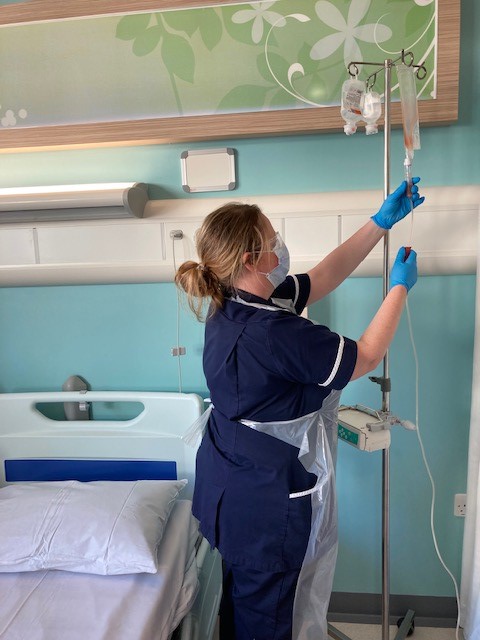We’re recognised as one of the leading clinical research units in the world for children’s immunology.
Our paediatric immunology unit at the Royal Victoria Infirmary (RVI) is one of the busiest in the country, seeing and treating patients from across the UK and internationally.
We are one of only two centres in the UK commissioned nationally to treat children with immune system deficiencies and each year we see over 1,400 children with immunity and infection problems.
Patients are referred to our care for the investigation and management of a range of immune system disorders including:
- immunodeficiency (either primary or secondary) which are rare inherited conditions affecting the immune system such as Severe Combined Immune Deficiency (SCID).
- auto-inflammatory syndromes
Our pioneering new treatments enable children to lead normal, healthy lives free from medication.

Stem cell transplant
We’ve been providing stem cell transplants for children with defective immune systems for over 35 years. We perform up to 40 stem cell transplants each year for disorders such as SCID.
A stem cell or bone marrow transplant replaces damaged blood cells with healthy ones.
Stem cells are produced by bone marrow (a spongy tissue found in the centre of some bones) and can turn into different types of blood cells. The stem cells are obtained from healthy donors, either from their bone marrow or from their blood stream.
Stem cell transplants are used to treat conditions in which the bone marrow is damaged and is no longer able to produce healthy blood cells.

Specialist care and support
We use the latest technology and research-based treatments, combined with specialist care and support, to meet the individual needs of our young patients and their families.
Our highly-trained specialist nursing team helps families prepare for their child’s transplant and to manage their aftercare.
Immunology research
Our clinicians are closely aligned with the child immunology research unit at Newcastle University.
We are involved with collaborative research across the globe and have pioneered the use of the latest transplant techniques, enabling us to carry out a procedure on any patient who needs a transplant.
We use less toxic chemotherapy successfully, meaning fewer side effects for patients – both in the short term and long term – and a better recovery.
